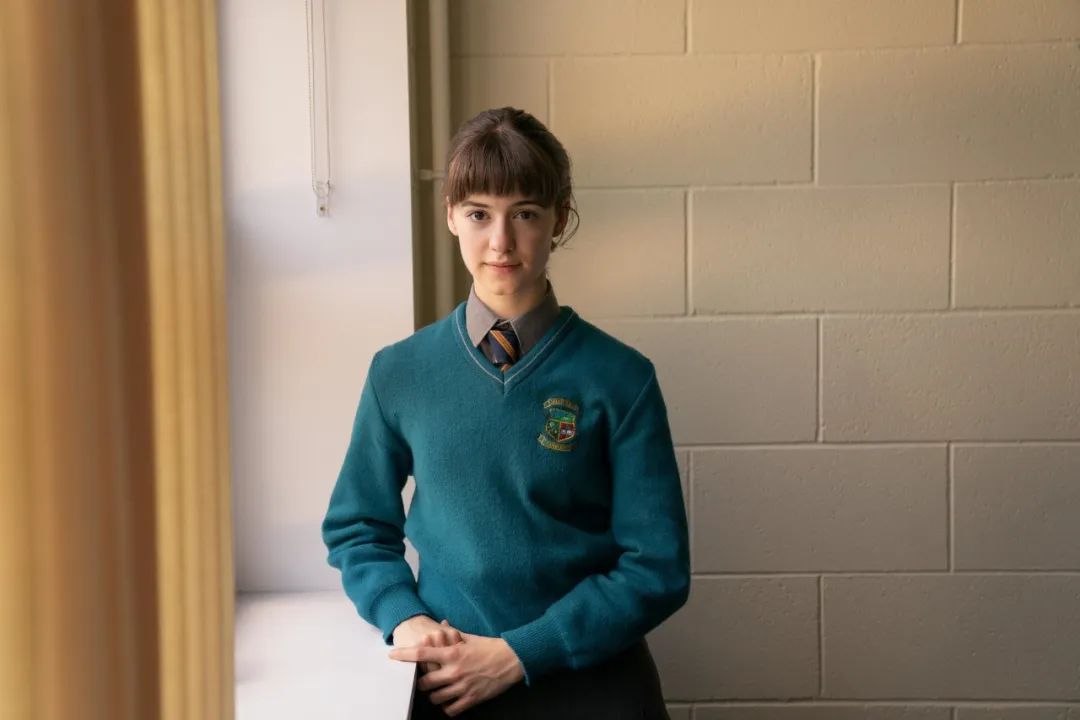2018年的一本畅销小说, Hulu 拍成了电视剧,同样评价很高,以下为来自于《纽时》 同样用词方面很值得学习的一个剧评

原标题:‘Normal People’ Review: Their Love Will Tear You Apart
原作者:James Poniewozik
原刊于:New York Times
转载未获授权,如有授权请联系删除。
Even if you have never read Sally Rooney’s “Normal People,” you will immediately realize that the TV adaptation is a young-love story. If the moony soundtrack doesn’t clue you in, you will need only a few seconds in the presence of Marianne (Daisy Edgar-Jones) and Connell (Paul Mescal), who have so much chemistry you may need lab goggles.
It is also, as the series soon makes graphically clear, a young-lust story, in which the copious, urgent sex is as much an expression of character as of hormones.
But beyond the heavy emotions and heavy breathing, this gorgeous, melancholy series, whose 12 half-hour episodes arrive on Hulu Wednesday, is really about growing up: the necessary, wrenching process of breaking down the person you were in order to become the person you’re going to be.
Set in Ireland in the early 2010s, “Normal People” introduces the small-town schoolmates Marianne, who comes from money, and Connell, whose mother cleans house for Marianne’s family. Their dynamic inverts the teen-drama cliché of popular rich kid and alienated poor kid. Marianne is the outcast, bookish and sarcastic. Connell is beautiful, athletic and well-liked, socially comfortable but self-effacing.
What they have in common are an instant attraction and a sharp intelligence. The first tumbles them into bed; the second makes them realize they can talk to each other as with no one else. When they first undress in front of each other — there is much equal-opportunity nudity here — it feels less prurient than like a milestone: They’re each about to get to truly know another person outside their family.
Where in some teen stories sex is an end in itself, in “Normal People” it’s a way of experimenting with your identity, with your relation to other people, with power and powerlessness. After an early flirtation, Marianne revels in Connell’s attraction to her: “You were tempted. I tempted you.”
Sex, and then love, reveal Connell’s insecurity despite his popularity. Marianne, whose self-worth is also undermined by her villainously unloving family, eventually develops a streak of masochism. In bed and out of it, each has something the other craves and lacks: Connell’s even-keeled kindness, Marianne’s decisiveness and bracing honesty. (“You just always know what you think,” he tells her. “I’m not like that.”)
Rooney, who adapted the series with Alice Birch and Mark O’Rowe, has created a complex study of power wrapped up in a heartfelt teen soap. When Marianne suggests keeping their affair a secret, Connell — afraid to be teased by his friends — agrees too readily, a hurtful choice that echoes in their relationship for years.
When they leave for Trinity College, however, Marianne finds the kind of sophisticated, sardonic people she’s comfortable among, while Connell is now the one who feels out of place. Somehow, the differences between his class background and Marianne’s are more conspicuous in Dublin than at home.
But they reconnect as friends, then as friends with benefits. There’s some plot to “Normal People” — over their college years, Connell struggles with money and depression, Marianne with her family. But mostly, the story is simply: Time goes on, people grow older.
The two have triumphs and setbacks, they travel and return, they talk each other through relationships with other people. They are like two sine waves on a graph, sometimes cresting at the same time, often out of sync until they converge again. (Hulu is releasing the series all at once, and it benefits from the time-lapse effect that bingeing gives to their relationship over the years.)
All of this is extremely faithful to the novel. The big difference is the series’s tone and willingness to live in its feelings. Rooney precision-mapped her self-aware characters’ psychological states in cool, piercing prose. Here, much of that interior work falls to the direction, split between Lenny Abrahamson and Hettie Macdonald, which renders the story warmer, dreamier, more tactile.
“Normal People” tells its story in bursts and flashes, vignettes that glow up onscreen and fade into another. Watching it feels like walking through someone’s memories, sampling crucial bits of experience and image — a bike ride, a figure reflected in a pool — that, only in retrospect, turn out to have meant everything.
I found it all moving and emotionally wrecking, in the best way. Some viewers, I imagine, will find it goopy, or much ado about a much-told story. (You will need patience for long, earnest college talks about society and art and fairness.) The series never really develops any characters outside the central pair — it only has eyes for them — and the last third or so feels slack, moping from one flavor of melancholy to another.
But to someone with a palate for those flavors (a sad tooth?), “Normal People” is something special, a complex teen romance that captures how love can be a kind of rivalry without pushing the viewer to join Team Him or Team Her.
Edgar-Jones and Mescal are radiant individually — she’s a beacon, he’s an ember. But they also create something collectively. The relationship is a kind of character, something that Connell and Marianne have to build, and possibly destroy, in order to realize who they are. Even in the sex scenes, the feeling is something more than lust; it’s as if Marianne and Connell were trying desperately to get at a hidden piece inside the other that they need to complete themselves.
Which, in a way, is exactly what they’re doing. “Normal People” looks and sounds like a teen melodrama about falling in love and getting it on. But more than that, it’s a double-barreled bildungsroman, an empathetic study of two young people coming, together, of age.
用英语获得英语信息
相关书籍已上架 LAB Reads
本文源自微信公众号:LABcircle

